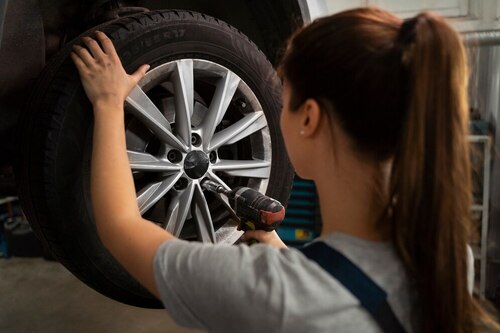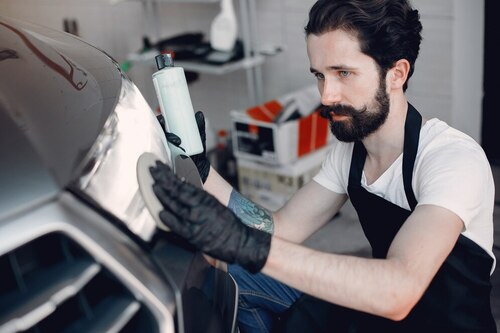In the realm of DIY car detailing, vinegar often emerges as a go-to solution for its affordability and effectiveness. But is this pantry staple truly a friend to your vehicle's finish, or could it be a hidden foe? Let's delve into the advantages and disadvantages of using vinegar in car detailing, ensuring your ride remains in top-notch condition.
The Pros of Using Vinegar in Car Detailing
1. Effective Mineral Deposit Remover
Vinegar's acidic nature makes it excellent for dissolving mineral deposits, such as hard water spots, that can mar your car's surface. A diluted solution (1:1 ratio with water) can effectively clean these blemishes without harming the paint when used correctly.
2. Cost-Effective Cleaning Solution
Compared to specialized car cleaning products, vinegar is a budget-friendly alternative that can handle various cleaning tasks, from windows to chrome accents.
3. Eco-Friendly Option
Being a natural product, vinegar is biodegradable and less harmful to the environment than many chemical-based cleaners.
The Cons of Using Vinegar in Car Detailing
1. Potential to Damage Paint
While vinegar can clean effectively, its acidity can strip away protective wax layers and, if left on too long or used undiluted, may dull the paint or cause etching.
2. Not Suitable for All Surfaces
Vinegar should be avoided on certain materials, such as rubber seals and certain plastics, as it can cause deterioration over time.
3. Unpleasant Odor
The strong smell of vinegar can linger, making the detailing process less pleasant, especially in enclosed spaces.
Best Practices for Using Vinegar Safely
-
Dilute Properly: Always mix vinegar with water (preferably distilled) in a 1:1 ratio to reduce acidity.
-
Test on Small Areas: Before applying to larger surfaces, test the solution on a small, inconspicuous area to ensure no adverse reactions.
-
Avoid Direct Sunlight: Apply the solution in shaded areas to prevent it from drying too quickly, which can lead to streaks or damage.
-
Rinse Thoroughly: After cleaning, rinse the area with water to remove any residual vinegar.
-
Reapply Protective Coatings: If vinegar strips away wax or sealant, reapply these protective layers to maintain your car's finish.
Conclusion
Vinegar can be a valuable tool in your car detailing arsenal when used correctly. Its effectiveness in removing mineral deposits and its eco-friendly nature make it appealing. However, caution is essential to prevent potential damage to your vehicle's surfaces. Always dilute, test, and rinse thoroughly to ensure your car remains in pristine condition.
For more expert tips and high-quality car care products, explore our range at WASH&WHIPS. If you have any questions or need personalized advice, don't hesitate to contact us.







